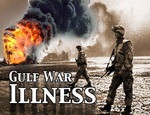 THE WAR WITHIN – Infighting among Veterans is counterproductive
THE WAR WITHIN – Infighting among Veterans is counterproductive
David K. Winnett, Jr.for VT
There are no greater patriots than our Soldiers, Sailors, Airmen, Marines, and Coastguardsmen. Collectively, the members of America’s Armed Forces represent the most formidable foe that any potential enemy could possibly imagine. They are better educated, better trained, and better motivated than any who came before them. They are today’s warriors, and tomorrow’s veterans. They are taught to fight for what is right and just, and to place country before self. Though many serve only one tour of duty before returning to civilian life, the values and camaraderie that they assimilate while on active duty will remain in their hearts for a lifetime. This is especially true for veterans who have served side by side in combat. The esprit de corps never dies. The Marine Corps motto is "Semper Fidelis", meaning, "Always Faithful", and we mean it.
The American Veteran is yesterday’s warrior. But the warrior creed remains for a lifetime. For all of these reasons there are two things in life that you do not want to do. First, don’t piss off our active duty warriors; if you live, you will live to regret it. Secondly, don’t piss off our veterans, for you will surely live to regret doing that. Our Armed Forces are certainly a force to be reckoned with, but so then are our veterans. Consider yourself warned, especially you who seek public office.
I recently wrote an Op-Ed that discussed America’s use of Depleted Uranium (DU) in our armaments. The Op-Ed was entitled, “A Painful Lesson in the Health Risks of Modern Warfare”. It was published in the Daily Breeze, a local newspaper based in my hometown of Torrance, California.
With today’s internet capabilities it didn’t take long for this article to make the rounds. Although the article discussed the possibility that DU may be at the root of Gulf War Illnesses, I clearly pointed out a number of other possible causes, including sarin gas, multiple vaccines, heavy use of pesticides, a non-FDA approved anti-nerve agent drug, and others. For the most part, the feedback on my article was very positive. The article stimulated discussion, which was my intent. But the negative feedback was much more interesting, and provided me with a sort of “baptism under fire” that I’m sure many journalists can relate to.
I found out after the article was published that some people can literally become emotionally unglued when they read something that they disagree with. I suppose by writing my article I expected to initiate a civil debate about the potential causes of Gulf War Illness. Was I wrong, at least in one case. One person in particular sent me an email filled with false assumptions and misstatement of facts regarding my article. More importantly, this person, who is quite apparently convinced that DU poses no risk at all to our troops and to the civilian populations that occupy former battlefields, despite strong evidence to the contrary, threatened to investigate my military records, apparently in an attempt to impeach my credibility.
When he advised me of this, I actually encouraged him to pull my records. I happen to be very proud of my Marine Corps service record. When that tactic didn’t seem to work he went on to accuse me of using my current employer’s time and resources to publish the Op-Ed, which could not be further from the truth. The individual went on to make very derogatory comments about my affiliation with a well-known veterans advocate and retired Air Force (Desert Storm) Nurse who for nearly twenty years has been one of the most outspoken advocates for sick Gulf War veterans. It turns out he has spent years attempting to discredit her at every turn. One has to wonder what this person’s motives are.
This person seemed hell-bent on censoring or completely discrediting what was clearly an opinion piece, and his tactics seem to have no limits. By no stretch of the imagination do I consider myself an expert on DU. Though I can say with absolute certainty that the health effects of DU are still being studied by some of this country’s finest scientific and medical institutions. To any veteran who has served in the defense of freedom, this form of attack on free speech should send chills down your spine, as it did mine.
The most disturbing part of all this, is that this person is a retired Reserve Air Force Lieutenant Colonel. A veteran. It is unknown what the Colonel’s motives are. Given the level of agitation that he has demonstrated on the issue of DU, some in the veteran community believe that he may in fact be associated with a governmental or corporate entity that is actively undermining any open discussion about Depleted Uranium. Hopefully this is not true. Hopefully he is just a person with what some call “an unhealthy obsession”.
No one appreciates freedom more than those who have put their lives on the line to defend it. Veterans selflessly go forth into battle to protect and defend our Constitution. When they come home from the battle, they rightfully expect to be protected by that same Constitution, and by the Bill of Rights. Freedom of speech brings with it a reasonable expectation of civility and a respectful debate.
Unfortunately as we see all too often in politics, many seem unwilling or unable to engage in debate without including unwarranted conjecture and personal attacks. For politicians to engage in such behavior has come to be expected. For veterans to engage in such behavior is shameful. If we are unable to engage in civil debate amongst ourselves, how can we expect to maintain any degree of credibility in the eyes of those we are seeking to influence, most notably our elected representatives? On issues such as Gulf War Illnesses, how can we begin a respectful conversation with our government when we can’t even get along with one another?
Nearly twenty years ago, something happened that eventually caused one in four Gulf War Veterans, an estimated 170,000 members of our Armed Forces, to become sick with as yet unexplained chronic illnesses. As the years have passed, many veterans have bravely stepped forward as they were trained to do, to take the lead in getting to the bottom of what has since become known as Gulf War Illnesses. Along the way, we have made significant progress. But many times we have stumbled. All too often we have stumbled over our egos, or individual biases.
The petty arguments have far too often resulted in unnecessary delays in lobbying for much-needed legislation aimed at bringing relief to those who suffer from these devastating illnesses. Far too often, when those who need us the most, needed us the most, we let them down. Many of the heroes who took point on this issue from the very beginning have long since thrown in the towel and retired, weary from the internal battles and infighting. A few, like Desert Storm Nurse have weathered the storm and the vicious personal attacks, at great personal sacrifice to health, personal finances, and emotional well-being. How anyone of good conscience, especially another veteran, can treat someone with such contempt is beyond outrageous.
Veterans should treat other veterans with the same respect that we have come to expect from a grateful nation. Launching personal attacks on a fellow veteran over scientific disagreements is totally unacceptable, and in the case of a Commissioned Officer, conduct unbecoming. We stood together against our enemies, and we should stand together now as veterans to condemn this kind of behavior wherever and whenever it appears. We need to police our own. Only then can we expect to hold our elected representatives to the same standards.
David K. Winnett, Jr.
Captain, USMC (Ret.)
Chairman, Funding Development, National Gulf War Resource Center (www.NGWRC.org)

Gordon Duff posted articles on VT from 2008 to 2022. He is a Marine combat veteran of the Vietnam War. A disabled veteran, he worked on veterans and POW issues for decades.
Gordon is an accredited diplomat and is generally accepted as one of the top global intelligence specialists. He manages the world’s largest private intelligence organization and regularly consults with governments challenged by security issues.
Duff has traveled extensively, is published around the world, and is a regular guest on TV and radio in more than “several” countries. He is also a trained chef, wine enthusiast, avid motorcyclist, and gunsmith specializing in historical weapons and restoration. Business experience and interests are in energy and defense technology.
ATTENTION READERS
We See The World From All Sides and Want YOU To Be Fully InformedIn fact, intentional disinformation is a disgraceful scourge in media today. So to assuage any possible errant incorrect information posted herein, we strongly encourage you to seek corroboration from other non-VT sources before forming an educated opinion.
About VT - Policies & Disclosures - Comment Policy



